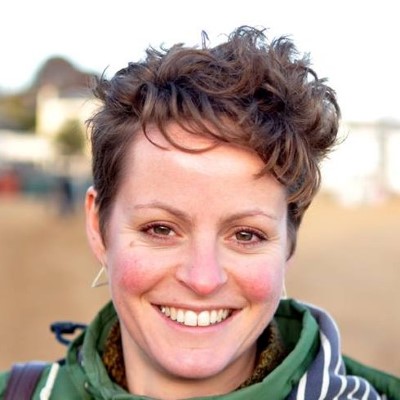Dr Elizabeth Webb, Senior Research Manager at Age UK, has an MSc in Epidemiology from the London School of Hygiene and Tropical Medicine and a PhD in Social Epidemiology from University College London. She discusses the latest coronavirus research (and debunks some recent headlines).
COVID-19 is a new disease, and there are many things about it we don’t know about the virus yet. The teams of scientists trying to predict how the COVID-19 epidemic will progress are scrutinising the available data and, where data isn’t available, making a hypothesis – a best guess – as to the information that is missing. As different scientists have different hypotheses, the answers they come up with to the key questions are also different.
Dramatic headlines
As this new area of science is of great public importance, the emerging COVID-19 science is getting a lot of attention in the media. Dramatic headlines in newspapers grab our attention, leading to what seem like mixed messages. For instance, many people may have seen reported this week a draft paper from a team of researchers at the University of Oxford. A headline in the Financial Times said that ‘Coronavirus may have infected half the UK population’ and the accompanying article said that the paper suggested that ‘the vast majority of people suffer little or no illness’.
It’s easy to think the findings in this paper from the team of scientists in Oxford throws into question the Government’s advice to us to all stay at home to avoid catching or passing on the virus. However, this is not the case.
The science behind the decisions
Read more about the research that led to the coronavirus guidelines for those aged 70 and older.
Lack of evidence
The team in Oxford say that their paper is based on a hypothesis that only a small minority – 1 in 100 or even 1 in 1,000 – who get the virus which causes COVID-19 will need to be in hospital. There is not evidence to support this, it is just the team’s ‘best guess’, based on the idea that lots of people with the virus might not have symptoms and will be unaware that they’ve had it. We know this is true of some people, particularly children, who get COVID-19, but we don’t know that this is true of enough people for the Oxford team’s hypothesis to be correct.
The ‘best guess’ of the team at Oxford is very different to that made by another team of scientists, based at Imperial College London, whose research has informed the government’s COVID-19 guidance to us all. They think the chances of needing to be in hospital are around 1 in 1,000 for babies and children – similar to the Oxford study – but that the chances increase steeply with age up to around 1 in 4 for those aged 70 and over.
Testing the hypothesis
The Oxford team don’t, despite what’s been suggested, say the Government’s guidance to the public on COVID-19 should change. Rather, they make the sensible suggestion that we should do widespread testing of the UK population to work out who has already had COVID-19, and to test if their hypothesis is correct. Tests to do this are being developed, and it’s hoped they will be widely available soon.
We at Age UK want to encourage and support everyone to follow the Government’s guidelines to stay at home, to protect yourself, those around you, and the NHS. Whilst we do this, we hope that the scientists will continue to collect and analyse more data, to produce the highest quality science, and to share this science with decision makers in Government so the COVID-19 epidemic causes as little harm as possible.
 No one should be left behind
No one should be left behind
As lockdown lifts, you can help us make sure vulnerable older people aren't forgotten. Donate today to help Age UK open doors for our older generation.

More articles by Dr Webb
Dr Elizabeth Webb is a Senior Research Manager at Age UK. She has an MSc in Epidemiology from the London School of Hygiene and Tropical Medicine and a PhD in Social Epidemiology from University College London.
- What's the science behind the Government's guidelines?
- Why are older people more at risk from coronavirus?
- How can we recognise when we have coronavirus?
- How close are we to a vaccine?
- What is R?
- How do we keep R below 1?
- What's the updated picture of coronavirus and older people?
- How can you assess your own risk from coronavirus?
- Is there an increased risk of coronavirus for BAME older people?
- What is k and who are the super-spreaders?

